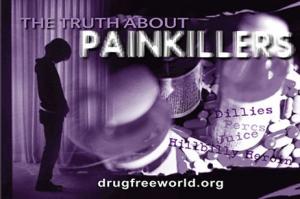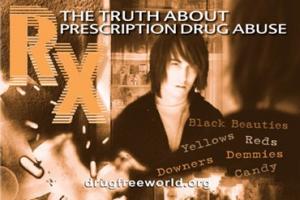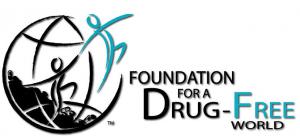National Substance Abuse Prevention Month: Campaign to educate youth on drug dangers could save lives, group says
Youth and adults alike reach for prescription drugs for various reasons. More education on their dangers is vital to prevent accidental overdose deaths.
While there has been a lot of discussion, medical research, government action, and media coverage regarding the search for safer painkilling drugs, the dangers of opioids and other drugs are often unknown to youth and adults according to the foundation.
Foundation for a Drug-Free World DC is focusing on painkillers because four out of five pharmacy-filled prescriptions are opioids according to https://drugabusestatistics.org. Generally people do not think about prescription drugs as a possible problem.
The Foundation for a Drug-Free World’s (www.drugfreeworld.org) informational booklets on prescription drugs and painkillers inform people of these statistics and also on the dangers of taking other people’s prescriptions, buying drugs online and staying on painkillers for long periods without being under a doctor’s care.
Prescription painkillers are "powerful drugs that interfere with the nervous system’s transmission of the nerve signals we perceive as pain. Most painkillers also stimulate portions of the brain associated with pleasure. Thus, in addition to blocking pain, they produce a ‘high.’ The most powerful prescription painkillers are called opioids, which are opium-like compounds. They are manufactured to react on the nervous system in the same way as drugs derived from the opium poppy, like heroin,” according to the scientifically based research quoted in the Foundation for a Drug-Free World’s free booklet on prescription painkillers.
Painkillers are prescribed by doctors for pain occurring from injuries and surgeries, but people can also get these prescription pain medications from family, friends, online pharmacies, or on the street without seeing a doctor or getting a proper medical diagnosis. Taking these highly potent pain medications casually without having all the facts on their dosage recommendations and without medical supervision can lead to abuse, dependency, and addiction. This, in turn, can spiral a user's life downward quickly and unwittingly. Many opioid addicts say they started after accidents which lead to pain pills, then addiction.
One of the critical factors that created America’s current addiction epidemic was an increase in prescribing opioid painkillers during the 1990s and 2000s. Whereas many had legitimate pain concerns, millions became addicted to these drugs, sometimes getting them illegally or turning to heroin or illicit synthetic opioids when their prescriptions ran out. The opioid crisis is one of America's greatest societal issues today. The number of drug overdose deaths across the nation has climbed significantly over the past two decades because of painkillers and their synthetic analogs. So, why is this problem of addiction getting worse and worse and not better?
According to the Foundation for a Drug-Free World's booklet Painkillers, "Like all drugs, painkillers simply mask the pain for which they are taken. They don’t ‘cure’ anything. Someone continuously trying to dull the pain may find himself taking higher and higher doses—only to discover that he cannot make it through the day without the drug."
The National Center for Drug Abuse Statistics reports that there are 9.7 million annual abusers of painkillers and 9.3 million annual abusers of opioids alone.
There are ways to prevent dependency before it happens. According to the Foundation for a Drug-Free World's Painkillers booklet, warning signs of dependency may include the following:
* Usage increase: increase of one’s dose over time, as a result of growing tolerant to the drug and needing more to get the same effect.
* Social withdrawal: withdrawal from family and friends.
* Neglects responsibilities: neglect of household chores and bills; calling in sick to school or work more often.
* Blackouts and forgetfulness: forgetting events that have taken place and experiencing blackouts.
* Defensiveness: becoming defensive and lashing out in response to simple questions in an attempt to hide a drug dependency, if users feel their secret is being discovered.
There are actions that can be taken to help educate others about the warning signs. The Truth About Drugs Education Package for teachers contains practical tools to educate young people about substance abuse. This allows educators to reach young people early with effective, fact-based drug education—before they start experimenting with drugs. Tweens, teens, and young adults who know the facts about drugs are much less likely to start using them.
Ms. Thalia Ghiglia from the Foundation for a Drug-Free World’s Washington, DC, chapter explains, “Too many of our youth have succumbed to overdoses. I wonder, would the outcome have been different if they had known the truth about the drugs they were taking? I believe it would have.”
The core of the foundation’s education program consists of the one hour and 42-minute documentary, The Truth About Drugs: Real People—Real Stories. In addition, law enforcement, drug prevention specialists, and any educational group can use the booklets or education packages to help educate on these important topics.
The Foundation for a Drug-Free World is a nonprofit public benefit corporation that empowers youth and adults with factual information about drugs so they can make informed decisions and live drug-free.
Always looking for opportunities to reach individuals and communities, the foundation is most grateful to its many partners who help multiply the reach of the information contained in the educational booklets through their networks. From setting up tables of free information at various Washington, DC, agency events, to giving talks to youth at local organizations, the foundation has been focused on educating anyone who will listen. Disseminating knowledge about the dangers of drugs statistically lowers the number of people using those drugs.
Foundation for a Drug-Free World offers fourteen free illustrated drug information booklets that include facts about commonly abused drugs and make it easy to learn by focusing on one certain drug or drug category per booklet.
Through a worldwide network of volunteers, 50 million drug prevention booklets have been distributed, tens of thousands of drug awareness events have been held in some 180 countries and Truth About Drugs public service announcements have been aired on more than 500 television stations. These materials and activities have helped people around the world learn about the destructive side effects of drugs and thereby make the decision for themselves to use them or not.
Works Cited:
https://www.cdc.gov/opioids/data/index.html
https://drugabusestatistics.org/prescription-drug-abuse-statistics/
Thalia Ghiglia
Foundation for a Drug-Free World
+1 202-667-6404
email us here
Legal Disclaimer:
EIN Presswire provides this news content "as is" without warranty of any kind. We do not accept any responsibility or liability for the accuracy, content, images, videos, licenses, completeness, legality, or reliability of the information contained in this article. If you have any complaints or copyright issues related to this article, kindly contact the author above.




